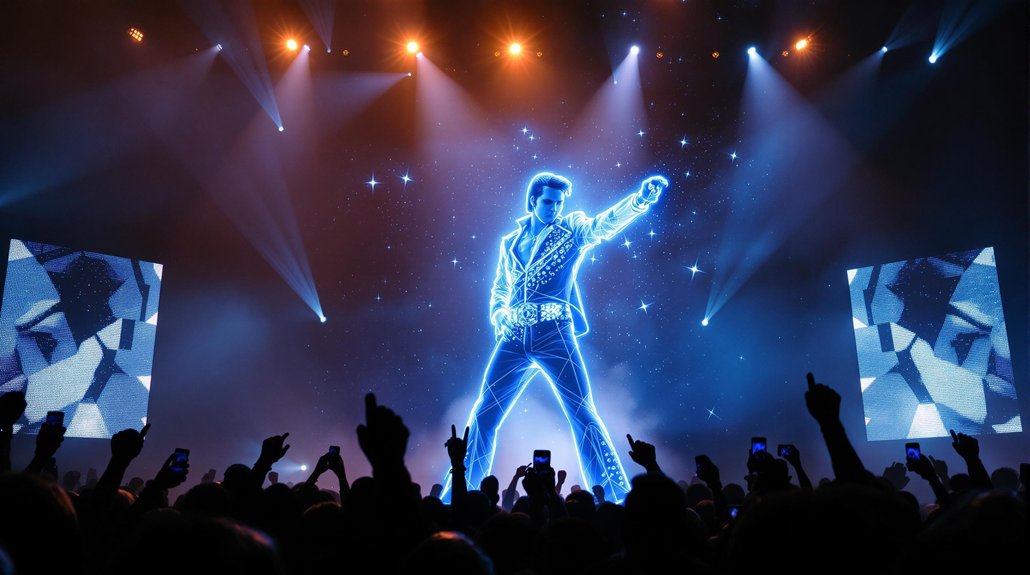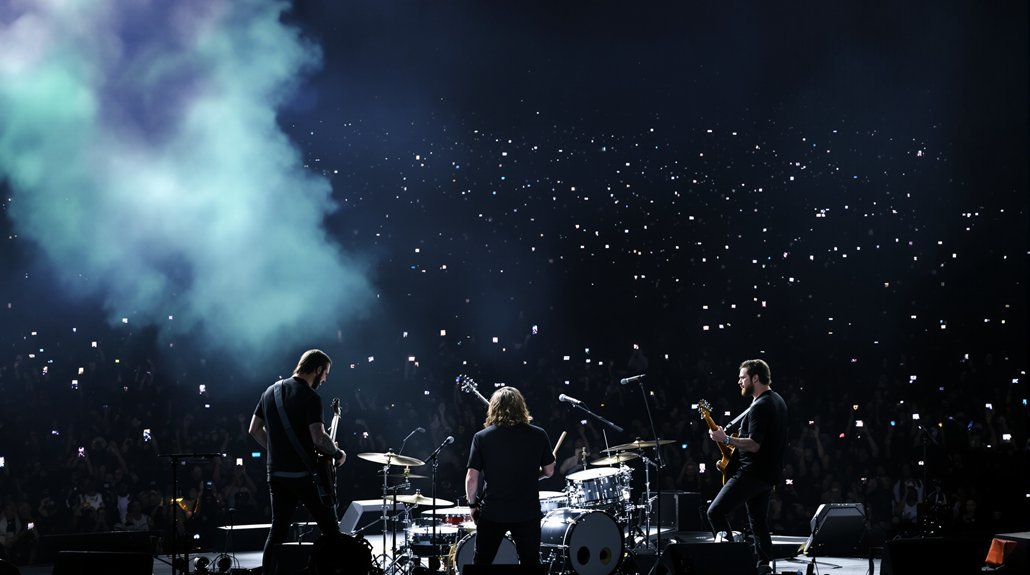The AI-driven Elvis Presley holographic concert experience generated significant controversy after promotional materials promised cutting-edge holographic performances featuring AI-generated recreations, yet the final production by Layered Reality delivered AI-enhanced archival footage instead. Attendees who paid £75 to £300 expressed widespread disappointment over misleading marketing practices, with many leaving emotionally distressed and feeling culturally betrayed. Elvis fans condemned the technological substitution as diminishing authentic engagement with the artist’s legacy, while critics highlighted insufficient pre-event communication about fundamental concept changes that transformed the experience into an immersive theatrical production rather than the advertised digital recreation, sparking broader industry discussions about transparency standards.
When promotional materials promised audiences a cutting-edge holographic performance featuring AI-generated recreations of Elvis Presley, ticket buyers paid between £75 and £300 expecting to witness next-generation entertainment technology. However, the final production delivered by Layered Reality replaced the advertised holographic spectacle with AI-enhanced archival footage and theatrical elements, triggering widespread public backlash and accusations of false advertising.
Attendees discovered that no actual hologram was presented during the experience, which instead featured upscaled video archives from Elvis’s 1968 NBC studio concert, actors portraying various roles, and interactive themed environments including bars and props. The production company structured the event as an immersive theatrical experience rather than the promised digital recreation, fundamentally altering the core concept that had driven initial ticket sales and public interest.
Critics and audience members described the experience as misleading and inadequate, with negative reviews dominating online forums and review sites. Many attendees expressed regret over attending, citing the substantial deviation from promotional promises as deceptive marketing practices that failed to deliver expected value for premium ticket pricing. One attendee, Paige Rannigan, left in tears after feeling completely misled by the promotional advertisements.
The controversy intensified due to insufficient pre-event communication regarding the substantial changes made during production development. Layered Reality stated that the concept revision represented a creative decision made as the project evolved, but this rationale was only communicated after negative reception had already surfaced publicly.
Elvis fans particularly condemned the production for what they perceived as cultural betrayal, arguing that the AI-enhancement approach diminished authentic engagement with the artist’s legacy. Traditional performance authenticity remained a priority for many attendees who rejected the technological substitution for genuine recreated performances.
The widespread disappointment reflects broader concerns about entertainment industry marketing practices, particularly regarding emerging technologies like artificial intelligence and holographic displays. Online complaints and warnings to potential future attendees have accumulated across review platforms, with many describing the experience as a shambles that failed to meet reasonable expectations established through promotional materials. The show’s reputation declined so severely that organizers limited social media posts following the overwhelmingly negative feedback.
The incident demonstrates the risks associated with advertising cutting-edge technology before finalizing production elements, especially when premium pricing creates elevated audience expectations for innovative entertainment experiences.








